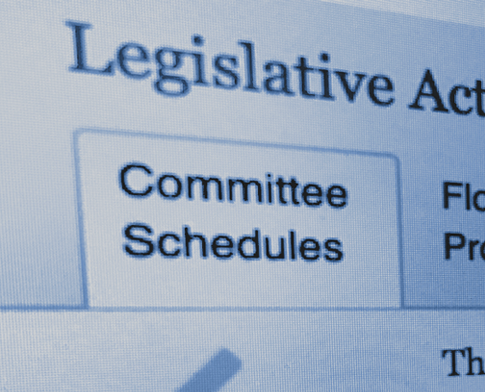Health Update (November 16)
| Last week, voters across America turned out in record numbers for the 2018 midterm elections. Health care was a top priority for many voters, and the results of the elections will have vast implications for the health policy landscape in the 116th Congress. To read a summary of last week’s post-election coverage from Capitol Hill Consulting Group, please click here.
In addition to the elections for House and Senate, many states asked voters to decide ballot initiatives on a range of issues. In Nebraska, Idaho, Utah, and Montana, the decision to expand Medicaid was on the ballot. Three states–Nebraska, Idaho, and Utah–accepted ballot measures to expand the federal health benefits program. Montana, however, rejected a proposal which would raise taxes on tobacco and e-cigarettes in order to pay for the expansion of Medicaid. All told, roughly 300,000 low-income people (90,000 people in Nebraska, 60,000 people in Idaho, and 150,000 in Utah) will be newly eligible for coverage.[1]
Another notable ballot initiative was Proposition 8 in California, a measure that would have required kidney dialysis clinics to refund insurance companies for profits above 115% of the cost of direct patient care. Proposition 8 was rejected 61-39 percent, but not before both sides of the initiative spent record amounts of money advocating for or against the ballot measure. The issue may return in 2020, as there are over 80,000 kidney dialysis patients in California.[2]
Finally, voters in Ohio rejected a ballot initiative known as Issue 1 which would have weakened law enforcement efforts in the fight against the opioid epidemic. The proposed constitutional amendment would have reduced penalties for drug crimes, prohibited prison sentences until a third drug offense within 24 months, and changed certain felony drug convictions into misdemeanors.[3] The initiative was defeated by a coalition of law enforcement officers, judges, and businesses who cited the success of drug courts in turning around lives of drug addicts.
Affordable Care Act News
This week marks the second week of open enrollment, and sign-up numbers show an 8 percent decrease in enrollment compared to last year. From November 4th to November 10th, 804,556 people signed up for a plan on the Affordable Care Act (ACA) exchange. Last year, that figure was 876,788 people in the same week.[4] Insurers continue to pay attention to these numbers for any indication that the removal of the individual mandate and the availability of short-term limited duration plans are impacting insurance enrollment totals.
The Centers for Medicare and Medicaid Services (CMS) released a proposed rule this week that would ramp up oversight of the ACA exchanges. Specifically, the rule would revise standards for data matching and create new requirements to ensure that enrollees do not receive advance payments of the premium tax credit or cost-sharing reduction payments for abortion coverage/services.[5] For more on the proposed changes, including an updated periodic data matching process, click here to read the proposed rule in its entirety.
Arkansas Medicaid Work Requirement
The Arkansas Department of Health and Human Services has removed an additional 3,800 people from its Medicaid program for failing to comply with the 80 hour work requirement. That brings the new total to over 12,000 since the start of the work requirements in August. Another 6,000 people are at risk of losing coverage at the end of November if they don’t meet the 80 hour threshold.[6]
Institution for Mental Diseases Exclusion
Health and Human Services (HHS) Secretary Alex Azar said this week that CMS will be giving states more flexibility to provide inpatient treatment to Medicaid beneficiaries with mental health diseases. Until now, Medicaid has not been allowed to pay for treatment in mental health facilities with more than 16 beds. Sec. Azar said that all state Medicaid directors would receive a letter from CMS explaining how they can apply for a waiver.[7]
E-Cigarette Rule
Food and Drug Administration (FDA) Commissioner Scott Gottlieb announced that the agency would begin banning menthol in cigarettes and limiting the sale of e-cigarettes to minors. Commissioner Gottlieb said that the latest figures on e-cigarette use among middle and high schoolers “shock my conscience.” Since last year, there has been an almost 80% increase in e-cigarette use among high schoolers and an almost 50% increase among middle schoolers.[8] Click here to read Commissioner Gottlieb’s full statement on the proposed new steps.
Moda Health Plan, Inc. v. United States
The U.S. Court of Appeals rejected a petition for an en banc rehearing in Moda Health Plan, Inc. v. United States.[9] The plaintiffs argue that the government should reimburse insurance providers for risk corridors payments. This stems from a provision in the Affordable Care Act that would have obligated the federal government to reimburse insurance providers for patients whose costs exceeded target amounts. Those risk corridors payments were later deemed not statutorily required because Congress eliminated the funding that would have allowed payments to be made, even in years where the pool would not have been budget neutral. Because the U.S. Court of Appeals rejected the en banc petition, expect this appeal to be brought before the U.S. Supreme Court.
References
[1] Alison Kodjak. “A Winning Idea: Medicaid Expansion Prevails in Idaho, Nebraska and Utah.” NPR, 7 Nov 2018. https://www.npr.org/sections/health-shots/2018/11/07/664661676/a-winning-idea-medicaid-expansion-prevails-in-idaho-nebraska-and-utah [2] Paulina Firozi. “The Health 202: The dialysis industry spent more than $100 million to beat a California ballot measure.” The Washington Post, 12 Nov 2018. https://www.washingtonpost.com/news/powerpost/paloma/the-health-202/2018/11/12/the-health-202-the-dialysis-industry-spent-more-than-100-million-to-beat-a-california-ballot-measure/5be867f11b326b392905472b/?noredirect=on&utm_term=.a6fdc31a94ba [3] Laura Hancock. “Ohio voters defeat Issue 1 on drug crimes.” Cleveland.com, 7 Nov 2018. https://www.cleveland.com/open/2018/11/ohio-voters-defeat-issue-1-on-drug-crimes.html [4] Susan Morse. “ACA enrollment drops 8% in second week.” HealthcareFinance.com, 14 Nov 2018. https://www.healthcarefinancenews.com/news/aca-enrollment-drops-8-second-week [5] Centers for Medicare and Medicaid Services. “Proposed rule, Patient Protection and Affordable Care Act; Exchange Program Integrity.” HHS, 9 Nov 2018. https://s3.amazonaws.com/public-inspection.federalregister.gov/2018-24504.pdf [6] Associated Press. “Another 3,800 Arkansans Lose Medicaid Coverage Over Work Requirement.” UALR Public Radio, 15 Nov 2018. http://www.ualrpublicradio.org/post/another-3800-arkansans-lose-medicaid-coverage-over-work-requirement [7] Allison Inserro. “HHS Lifting IMD Exclusion for Medicaid Payment for Inpatient Mental Health Treatment.” AJMC, 13 Nov 2018. https://www.ajmc.com/newsroom/hhs-lifting-imd-exclusion-for-medicaid-payment-for-inpatient-mental-health-treatment [8] Maggie Fox. “FDA restricts all flavored e-cigarettes; moves to ban menthol.” NBC News, 15 Nov 2018. https://www.nbcnews.com/health/health-news/fda-restricts-all-flavored-e-cigarettes-moves-ban-menthol-n936471 [9] “Appeal from the United States Court of Federal Claims in No. 1:16-cv-00649-TCW, Judge Thomas C. Wheeler.” United States Court of Appeals for the Federal Circuit, 6 Nov 2018. http://www.cafc.uscourts.gov/sites/default/files/opinions-orders/17-1994.Order.11-6-2018.1.pdf |
HOUSE.GOV
The Week Ahead
For the main events of the next week and more, go straight to the key events on the house.gov website.
SENATE.GOV
The Week Ahead
For the main events of the next week and more, go straight to the key events on the senate.gov website.


